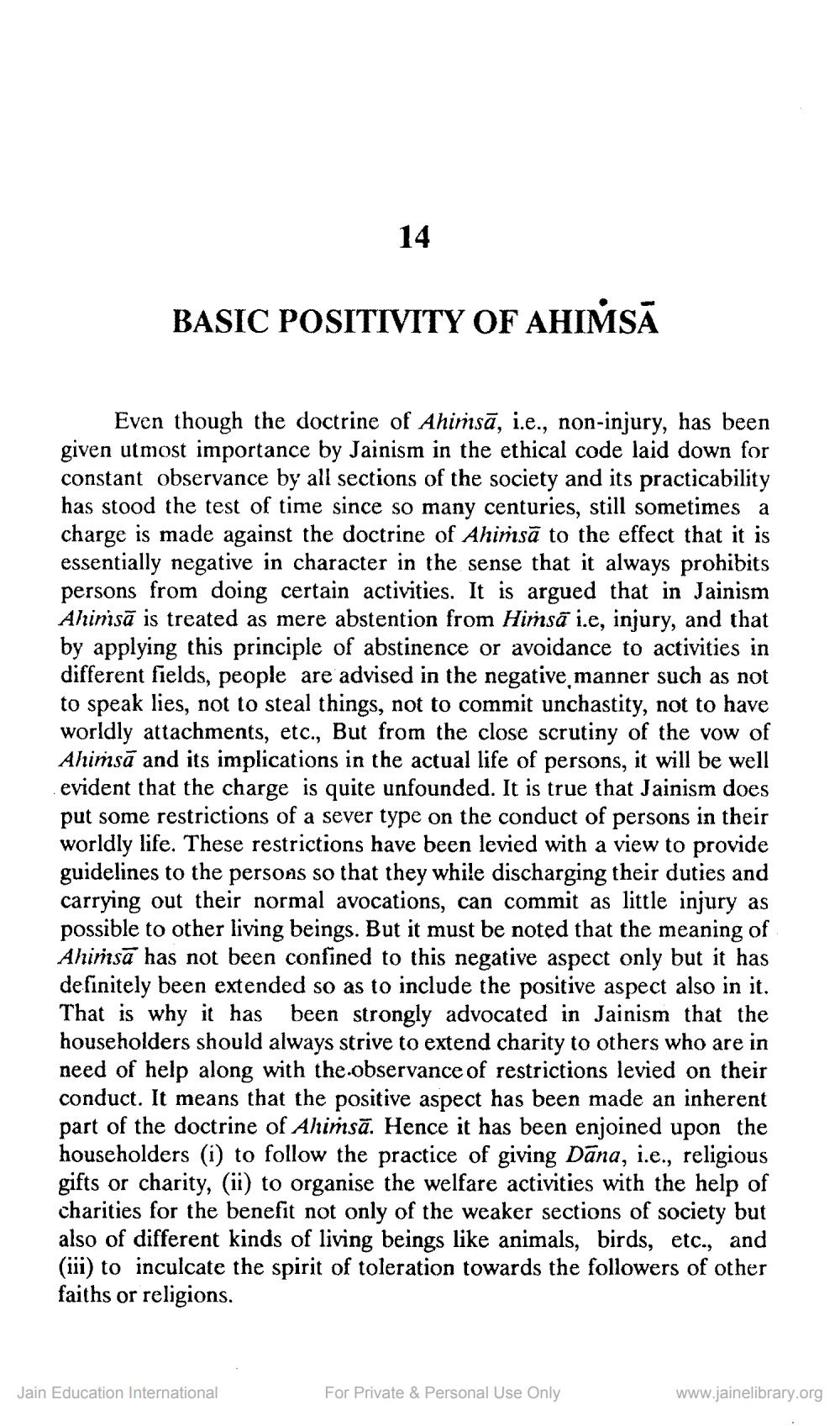________________
14
BASIC POSITIVITY OF AHIMSA
Even though the doctrine of Ahimsā, i.e., non-injury, has been given utmost importance by Jainism in the ethical code laid down for constant observance by all sections of the society and its practicability has stood the test of time since so many centuries, still sometimes a charge is made against the doctrine of Ahimsa to the effect that it is essentially negative in character in the sense that it always prohibits persons from doing certain activities. It is argued that in Jainism Ahimsa is treated as mere abstention from Himsa i.e, injury, and that by applying this principle of abstinence or avoidance to activities in different fields, people are advised in the negative manner such as not to speak lies, not to steal things, not to commit unchastity, not to have worldly attachments, etc., But from the close scrutiny of the vow of Ahimsā and its implications in the actual life of persons, it will be well evident that the charge is quite unfounded. It is true that Jainism does put some restrictions of a sever type on the conduct of persons in their worldly life. These restrictions have been levied with a view to provide guidelines to the persons so that they while discharging their duties and carrying out their normal avocations, can commit as little injury as possible to other living beings. But it must be noted that the meaning of Ahimsa has not been confined to this negative aspect only but it has definitely been extended so as to include the positive aspect also in it. That is why it has been strongly advocated in Jainism that the householders should always strive to extend charity to others who are in need of help along with the observance of restrictions levied on their conduct. It means that the positive aspect has been made an inherent part of the doctrine of Ahimsa. Hence it has been enjoined upon the householders (i) to follow the practice of giving Dana, i.e., religious gifts or charity, (ii) to organise the welfare activities with the help of charities for the benefit not only of the weaker sections of society but also of different kinds of living beings like animals, birds, etc., and (iii) to inculcate the spirit of toleration towards the followers of other faiths or religions.
Jain Education International
For Private & Personal Use Only
www.jainelibrary.org




